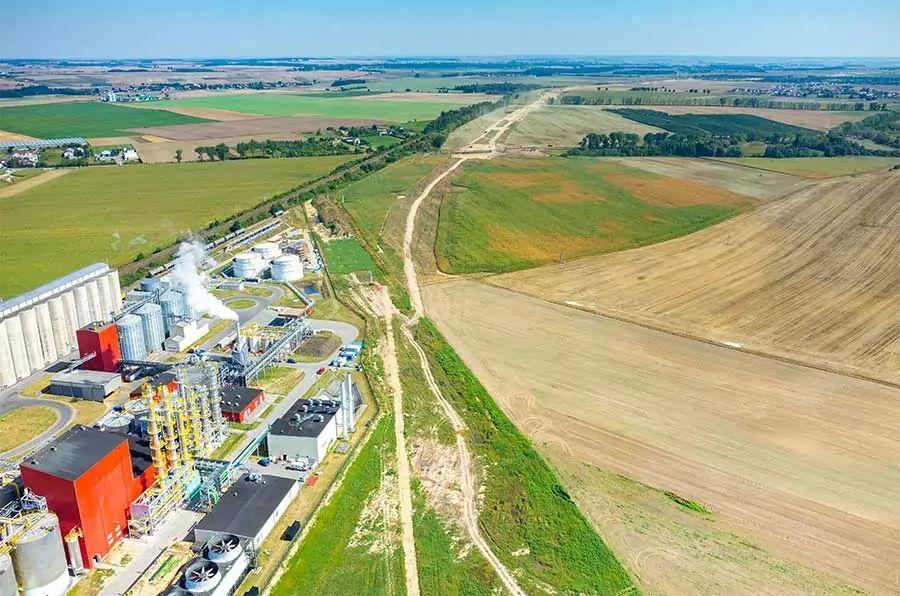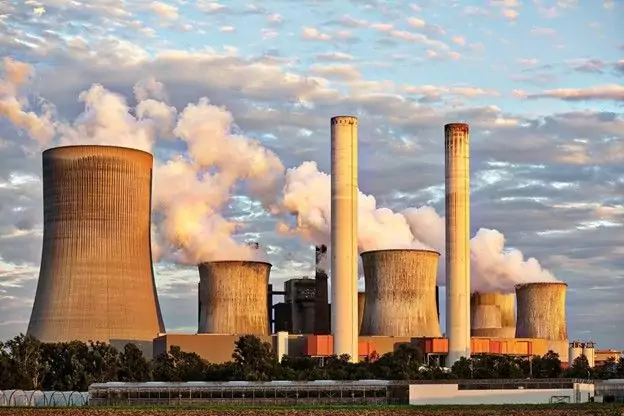This article review some of the many advantages and disadvantages of biomass and biofuel. Advantages include sourcing, renewability. The disadvantages covered include production costs and resources.
Biomass and biofuels have been used to generate energy since ancient times.
Examples include ancient people burning wood and branches to generate fire. Or how animal fats, like whale oils, were used extensively in the 17th century to fuel lamps.
Currently, biomass and biofuels offer numerous benefits to society. Biofuels are renewable, as the source material can generally be grown anywhere. Moreover, these alternative fuels have lower greenhouse gas emissions compared to traditional fossil fuels.
However, despite its evident advantages, biofuel production has its setbacks. Before widespread global adoption of several types of biofuel is possible, several challenges require solutions.
Here are the main advantages and disadvantages of biomass and biofuels.

What are the advantages of biofuels?
There are several benefits that contribute to the biofuel sector’s growing importance to energy markets. Looking at the pros and cons of biofuels, the following are five primary benefits.
1. Maintenance Costs
Many biofuels are similar in cost to gasoline.
However, from an environmental perspective, biofuels are cleaner and produce lower carbon emissions. Biofuel also aids in reducing greenhouse gases (GHG emissions) and combating global warming.
Due, in part, to how biofuels are produced, they also cause less degradation to engines. This results in lower maintenance costs and longer running life for those engines.
2. Sourcing
Global energy demand is always on the rise. Current oil and gas reservoirs will be of value for many more years, but the world’s fossil fuel supply is finite and our dependence on fossil fuels must come to an end.
Biomass fuels can be made from a vast variety of materials. Many biofuel feedstocks would otherwise be wasted. This makes it easier and cheaper to source biofuels, especially when produced in large quantities.
3. Renewability
Biofuel is derived from living organisms like plants and animals. They can also exist in dead or recently living plants, crops, shrubs, grass, and even animal waste.
Biofuel, which is created from biomass energy, is a renewable resource. Most sources utilized for biofuel production can be generated within weeks.
For instance, algae biofuel is a potential candidate for replacing global petroleum usage. Microalgae can be grown in wastewater. This contributes to their accessibility and convenient extraction.
4. Carbon Neautrality
Another advantage of biomass energy is its use of the planet’s natural carbon cycle.
Plants photosynthesize carbon from the atmosphere. When biofuels are burned, they release carbon back into the atmosphere. Hence, plants absorb an equal amount of carbon as to what biofuels can emit.
5. The Economic Factor
Hydrocarbon energy sources are not available in every country.
Thus many locations around the world are reliant on importing oil and gas products. The importation cost can be offset by the adoption of biofuels. This aids economic independence, increasing employment opportunities and reduces reliance on foreign oil and gas.
Food crops like corn that are grown locally and converted into biofuels in well-designed energy facilities can offset carbon debt. This reduces the costs of imported fossil fuels while providing improved economic benefits.

What are the Disadvantages of Biomass Energy?
Many view biofuels as a viable option for a cleaner and more cost-effective form of energy production. Despite the many advantages of biofuels, there are also several disadvantages to consider. These include:
1. Long-Term Costs
While maintenance costs of biofuel can be lower, the production costs remain high.
The demand levels of biofuel mean that interest rates and capital investment needs remain relatively low. This makes it easier to meet the current demand. However, as demand for biofuels continues to grow, converting to long-term operations will be much more expensive.
2. Biofuel Monoculture
Monoculture is when the same crop is repeatedly grown in the same location. The major problem of biofuel mass utilization is the lack of plant genetic diversity.
Crop rotation is vital for farmers and the environment. Consequently, growing any form of biomass fuels can have both short-term and long-term negative consequences on land sources.

3. Fertilizer Use and Biofuels
Fertilizers are used for crops to grow bigger and faster.
Fertilizers can be very harmful to the land and surrounding environment, animals, and people. Fertilizers have also been proven to contribute to water pollution. This is especially true of fertilizers that contain high levels of phosphorus and nitrogen.
4. Food vs. Fuel Sources
There is an ongoing debate about which takes priority, food or fuel sources? As the global population grows, so does the demand for available resources. For instance, not all lands are used for agricultural and livestock production. Some agricultural lands are converted for energy crop production.
This raises some major concerns about its potential impact on the food supply chain. Increased use of biofuels may result in increased food prices.
5. Pollution and Water Use
Biofuels have a smaller carbon footprint than fossil fuels during consumption. Still, biofuel crop production requires large amounts of both oil and water resources.
Furthermore, biofuels remain similar in environmental impact to fossil fuels, despite the common view that they are carbon neutral.
Addressing Biomass Biofuel Advantages and Disadvantages
Biofuels have many advantages. But current consumption and production technology means biofuel isn’t yet as efficient or as cost-effective as it needs to be.
Biofuels may be a viable global energy source in the future. However, current high costs must be addressed. These costs are related to research, development, extraction, and production.
As with other solutions, biofuels are not an immediate and complete solution to combat climate change. However biofuel should certainly be a part of it.
Planning a Biofuels Project?
Vista Projects is an integrated engineering services firm able to assist with your biofuels facility. With offices in Calgary, Alberta, and Houston, Texas, we help clients with customized system integration and engineering consulting across all core disciplines.








